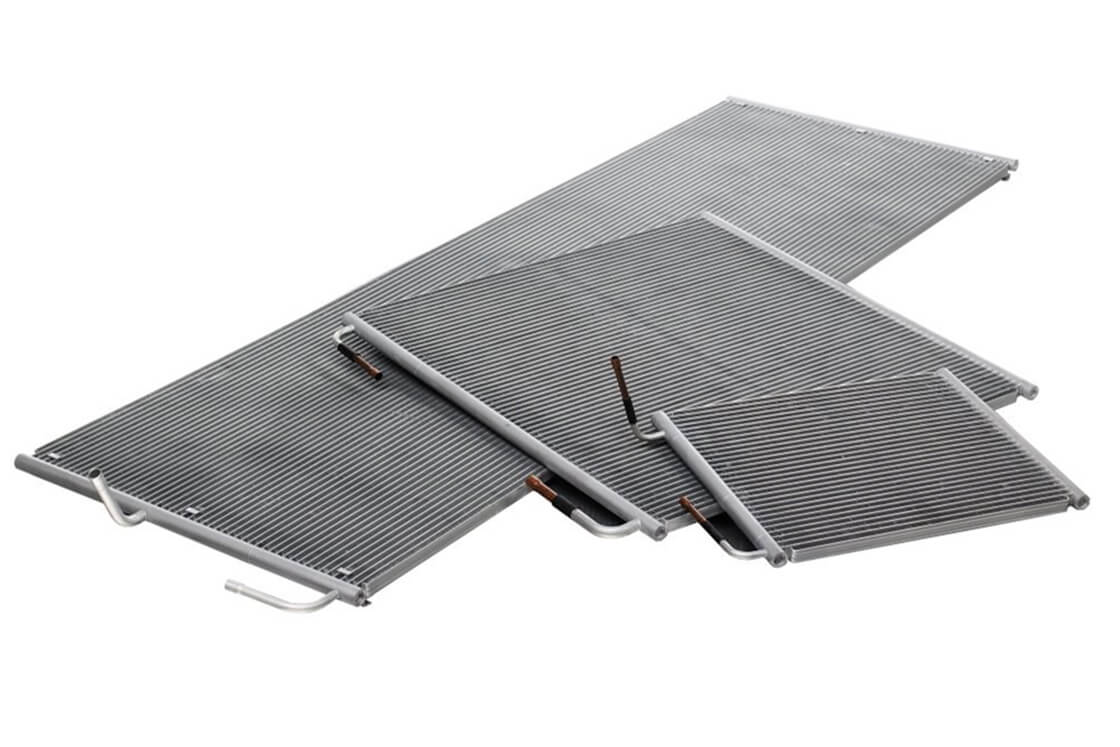
Microchannel heat exchangers represent a significant advancement in thermal management technology, particularly in refrigeration systems. Their design and operational efficiency provide unique advantages that traditional heat exchangers cannot match. Understanding the intricacies of these systems reveals their potential to transform industries reliant on precise temperature control.
Design Innovations
Microchannel heat exchangers utilize a compact architecture, incorporating numerous small channels that enhance heat transfer efficiency. This design reduces the refrigerant charge while maximizing the surface area in contact with the cooling medium. As a result, these exchangers can achieve higher thermal performance with less energy consumption.
For instance, the geometry of microchannels allows for effective laminar flow, which minimizes pressure drops within the system. This aspect is critical in refrigeration applications where maintaining energy efficiency is paramount. Manufacturers like Kaltra have pioneered the development of these systems, offering cutting-edge solutions that showcase the benefits of microchannel technology. You can explore more about these advancements in microchannel heat exchangers.
Thermal Performance
The efficiency of heat transfer in microchannel systems is remarkable. Studies indicate that these heat exchangers can improve the overall coefficient of performance (COP) of refrigeration systems by up to 15% compared to conventional designs. This improvement is largely due to the reduced thermal resistance and enhanced turbulence created by the microchannel structure.
Another noteworthy aspect is the reduced refrigerant volume required for effective operation. This not only lowers operational costs but also diminishes the environmental impact. In a world increasingly focused on sustainability, the adoption of microchannel heat exchangers aligns perfectly with corporate and regulatory goals aimed at reducing greenhouse gas emissions.
Applications Across Industries
Microchannel heat exchangers are not confined to a single application; their versatility makes them suitable for a range of industries. In the automotive sector, they are utilized in air conditioning systems to optimize cabin comfort while minimizing energy use. Similarly, in commercial refrigeration, these exchangers contribute to the efficiency of display cases and cold storage facilities.
In the HVAC industry, the integration of microchannel technology into air conditioning units has shown significant improvements in energy efficiency ratings. The smaller size and lighter weight of these heat exchangers also facilitate easier installation and maintenance, further enhancing their appeal in a fast-paced market.
Challenges and Considerations
Despite the numerous benefits, microchannel heat exchangers are not without their challenges. The manufacturing process demands precision and quality control to prevent defects in the channels, which can hamper performance. Additionally, while they are generally more efficient, they can be susceptible to fouling, which may require periodic maintenance.
It is crucial for engineers and system designers to evaluate the specific needs of their applications before committing to microchannel heat exchangers. Understanding the operating conditions and potential challenges will ensure that the investment yields optimal results.
Future Perspectives
The evolution of microchannel heat exchangers suggests a promising future for refrigeration systems. Ongoing research aims to enhance the materials used, such as incorporating advanced polymers and coatings that improve resistance to corrosion and fouling. As the technology matures, it is likely that we will see even broader applications and improved performance metrics.
The shift toward more energy-efficient systems in various sectors indicates that microchannel heat exchangers will play an integral role in the future of refrigeration technology. Their ability to adapt to new refrigerants and operational requirements will ensure their continued relevance in an ever-evolving market landscape.
A result of extensive research and development indicates that microchannel heat exchangers are not just a fleeting trend; they are a fundamental shift in how we approach thermal management in refrigeration systems. The combination of compact design, enhanced performance, and sustainability positions them as a cornerstone of modern engineering solutions.
